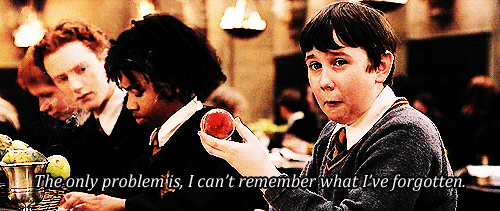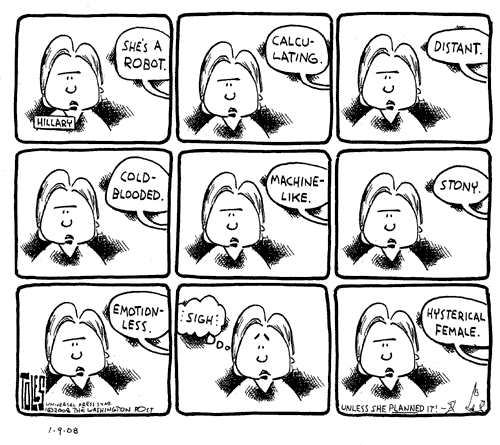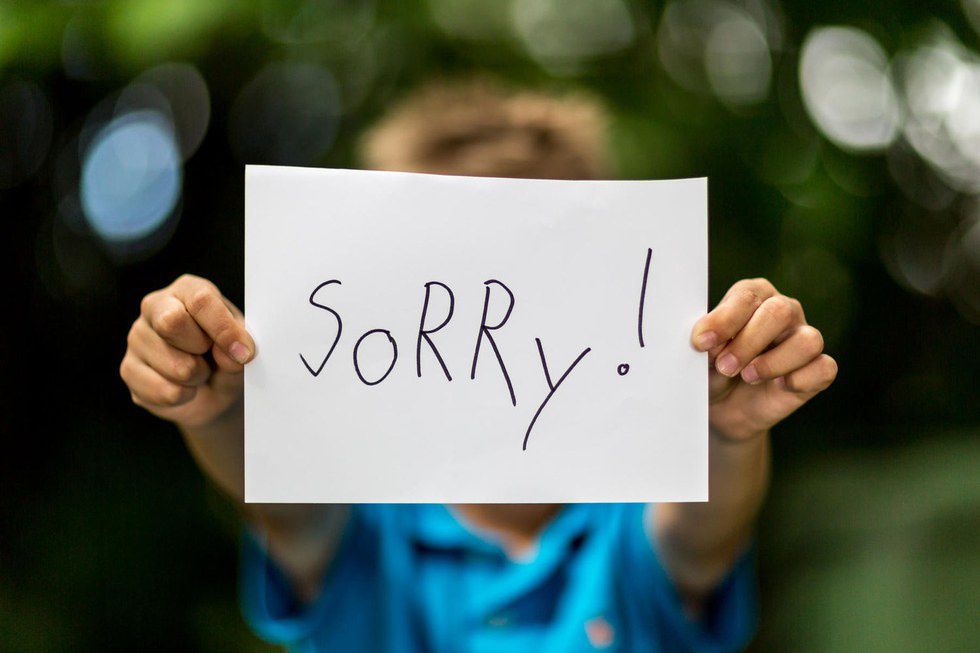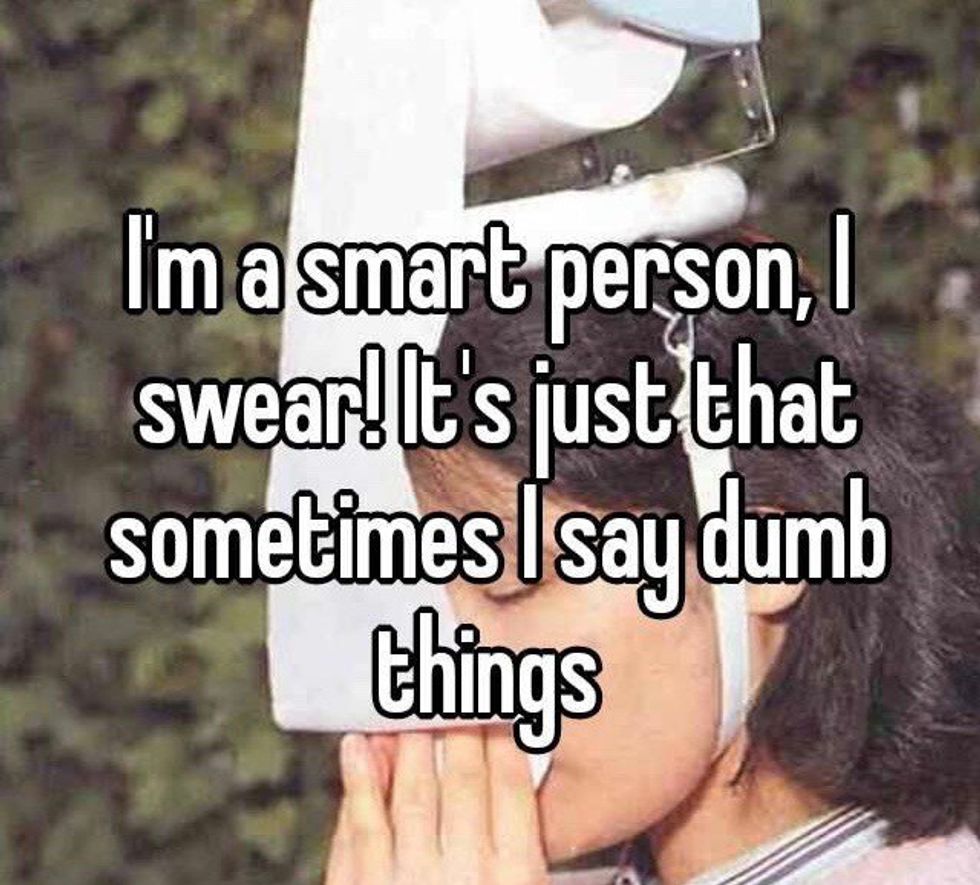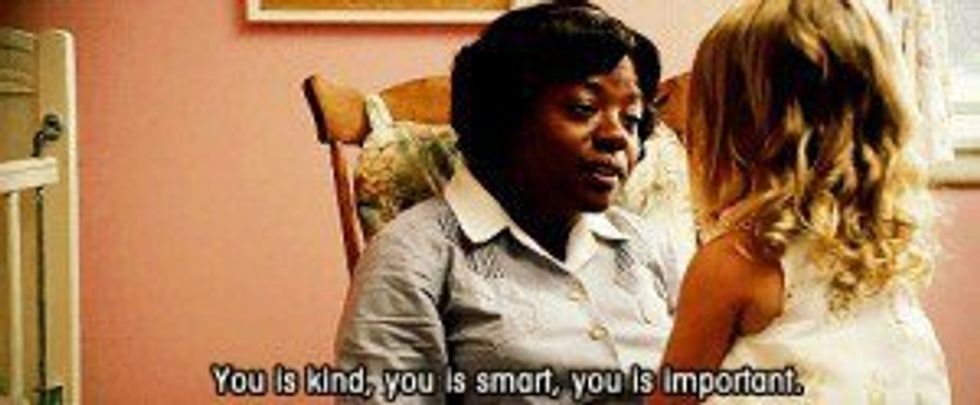Before I started writing on Odyssey, I had been meaning to expand my writing for quite a while. A lot of factors caused the delay, from finding a platform that fit to being in a place where I could make the required time commitment. Another, less conscious factor was that it is also just scary to publish writing online. That held true not only when I was first deciding whether or not to write on Odyssey (or anywhere else), but also holds true every single time I publish any article—even now. These are seven questions that run through my head that make publishing writing online scary at times:
1. Am I covering all my bases?
This one is usually when I am writing about political issues, but more specifically, it is especially relevant to writing about social issues: if you are arguing that something is problematic, obviously the last thing you would want is to be problematic yourself. Being inclusive is most important to me because of the human impact and the experiences of the actual groups of people who are involved.
I write about social issues a large portion of the time and being inclusive therefore a top priority, yet sometimes things inevitably slip. For example, I initially completely forgot to include that Penn Masala's question was also extremely heteronormative, on top of being misogynistic. The heteronormative aspect of it is a huge, huge issue so I was mortified when I realized I had not talked about that at all in my article, despite it being a major point when I was planning out the article in my head. I went back and added a bit on the heteronormativity to the already-published article as soon as I realized about a half hour my article went up, but that still goes to show how even the most well-intentioned efforts can be forgetful or not fully inclusive.
2. Could this be used against me if I ever run for public office?
Okay, this one definitely scares me a lot on the down low. Like the last question, this one is significant anytime I consider writing anything even remotely political, but also when I publish anything at all. Like with the last point about social issues, covering all of your bases and setting a strong foundation to rest your opinion on is crucial but easily to slip in.
As I said above, being inclusive and non-problematic is a priority for me first and foremost because of the human impact and all of the other most basic reasons, but on a secondary level, it is also scary for if I ever run public office. Media scrutiny of candidates is often brutal, and as we have seen all too well, this holds true to an even greater degree when said candidate is a woman. I therefore always wonder if 10 or 15 years from now, someone will dig up something I wrote on Odyssey and suddenly one misworded sentence will become the hail mary of my opposition and the media. Words are often easily twisted, and publishing writing declaring opinions on political/social issues in particular makes that even easier. My consolation for myself is that there will always be something for people to dig up if they really want to, so I guess we will deal with that when the time comes.
3. How would my parents react?
This is one that I think of a lot when determining what I am going to write about and how I am going to frame it. I am sure many other children of immigrants can relate to this one because this can be an especially relevant question when your parents are conservative culturally or simply come from a different background than the western world we grew up in. It can still hold true, however, even if you are not the child of immigrants—most parents have something or other that they are less lax about, so discussing issues relating to those areas can be a little more difficult.
There are a few topics that I have hesitated to write about or even withheld from completely (for now) after thinking about my parents reading it, although I do not think that is necessarily a bad thing. That said, there are also topics I have written about that I am sure my parents would not have preferred most (like frat ratios) or language I have chosen to use for its impact that may not have been their top choice (like "this pussy does grab back"). Ultimately, however, I know they would move past any initial discomfort to just be proud of me for speaking up for what I believe in. Balancing that belief with the small likelihood that they would ever actually end up reading my work (although we do talk about it, of course) is how I determine what I am and am not comfortable writing with. Basically, as long as it does not bring COMPLETE family shame...
4. Publicly acknowledging imperfection
This one is not a question like the other six, but is significant in the same way. In today's age of carefully crafted social media profiles, it is easy to see other people as "perfect," despite the fact that no objective perfection actually exists. Social media highlights the seemingly best, most perfect aspects of our lives to come together in an envious image that does not necessarily hold true further down: everyone has flaws, everyone has fears, everyone has self doubts, every has had failures in some way. No one is perfect, no matter how perfect their Instagram feed is. This public image of perfection that social media has fostered has made it more difficult for some to acknowledge their own imperfections, especially on an external level. That is no reason to bash on those who do find that difficult, because it is not really their fault—if everyone around them seems perfect, it is understandable for someone to not want to outwardly acknowledge their own imperfections.
That said, writing about personal experiences often involves imperfection or a flaw of some sort. After all, some of the best writing comes from reflecting on mistakes or failures. Publishing your writing, therefore, forces you to acknowledge these imperfections not only to yourself, but more importantly, on an external level.
5. Could this turn a future employer off?
It is pretty well-known that employers often do their due diligence in looking up prospective employees, as would be expected. That is certainly an important consideration for anything that you put on the Internet, not just in terms of published writing. After all, once something is out there—a picture, an article, a tweet, anything—it is out there, and that can have an impact on employment just as it could on a campaign. I would not be surprised if my Odyssey page came up and was glanced at in the future by potential employers, and while I will never apologize for having an opinion on critical issues, I know that those opinions could certainly turn some employers off. But hey, I guess those would not be the kinds of organizations I would want to work for anyway, if I have the privilege to make that choice.
There is also occasionally the concern that an employer or internship manager will read an article I have written and judge my writing skill, critical thinking ability, and/or intelligence based off of it. This is similar to #1, but that is usually pretty easy to write off as irrational to worry about too much since employers probably have more important things to do than to analyze one random article I wrote that deeply, and also have more concrete materials to look at to attest to those abilities.
6. Do I really want to deal with the response this could cause?
We are blessed to have our fundamental right to free speech protected here in America. Of course, that means that anyone can comment or respond to anything I write or say, and it certainly does not have to be nice. Now, often the purpose of writing about contemporary social issues is to start a dialogue, so let me be clear in saying I would be more than happy if an article I wrote resulted in productive discourse between readers.
Unfortunately, that usually is not what happens with potentially controversial articles—opposing comments sadly tend to be unproductive because they are not typically made with the intent of having a productive, open-minded conversation. Other times, such comments make one question whether the person even read the actual article. Those comments are difficult to respond to simply because of their nonsensical or round-about nature. Worse, however, is that a lot of the time the comments are simply hateful or personally targeting and even threatening. And yes, obviously dealing with that type of opposition and hatred is important to learn to do and is something virtually everyone will have to deal with to some extent throughout their lives—some people more than others. I am glad strangers on the internet force me to have a thick skin in that way.
That said, hateful or ignorant comments frankly get exhausting, even if you are doing nothing more than scrolling through and reading them. Some days I just do not want to deal with that kind of fruitless backlash, and although I have always ended up publishing anyway, there is definitely nothing wrong with waiting a day to have more energy to deal with inevitable opposition.
7. Am I actually a good enough writer for this? Will this be used to judge the entirety of my writing ability?
Ah yes, the classic bout with self-doubt. I am happy to say this is a diminishing issue, but I am ending with this one because even the most talented writer can face instances of questioning the merit of a particular piece of writing. Especially considering that when you publish writing on the internet it is out there for the entire world to see, it can be stressful at first to put yourself out there like that: you are not only putting your thoughts, ideas, and opinions out there for critique, but also your writing itself.
This can be particularly nerve-wracking for me when I know that the writing is not my best, being a wild perfectionist. At Odyssey we have a deadline every week, and sometimes a week gets busy and I end up rushing an article before the deadline—even though it is not my best, it is still going to be out there for the world to read and judge if they so wish (although the rational part of me knows that most people have better things to do with their lives than analyze the technicalities of my writing as deeply as I would fear). The perfectionist in me definitely freaked out a little when I realized that 25,000 people read my Penn Masala article—I had rushed writing it one Friday afternoon and had not spent as much time on it as I would have liked. On the bright side, however, this probably helps decrease the detrimental effects of perfectionism because it forces you to come to terms with the fact that yes, people are going to read this even though no, is not perfect—and hey look, the world did not end!
All in all, I am definitely very glad I decided to start writing for an online platform, and hope that this eases any similar fears of others who might want to start writing online, too. It is scary to put your voice out there sometimes, but ultimately, you were given that voice for a reason. This Thanksgiving, I am undoubtedly grateful to have the right to use that voice to express my ideas and opinions.




